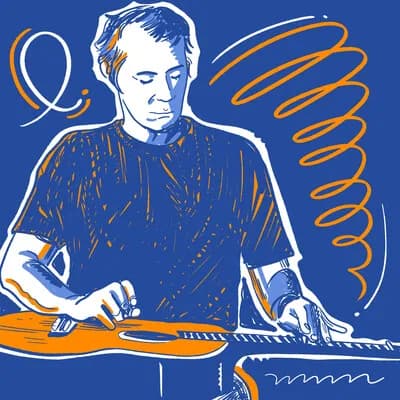
John Fahey
28 February, 1939 – 22 February, 2001
During the unthinkable years when listening to Charley Patton meant literally canvassing for old Paramount or Victor 78s, Fahey's love for music motivated a 1960s dissertation on Patton, vivacious adventures to find Skip James as well as Bukka White, and recording mountains of music.
MuseScore tabs
No data found